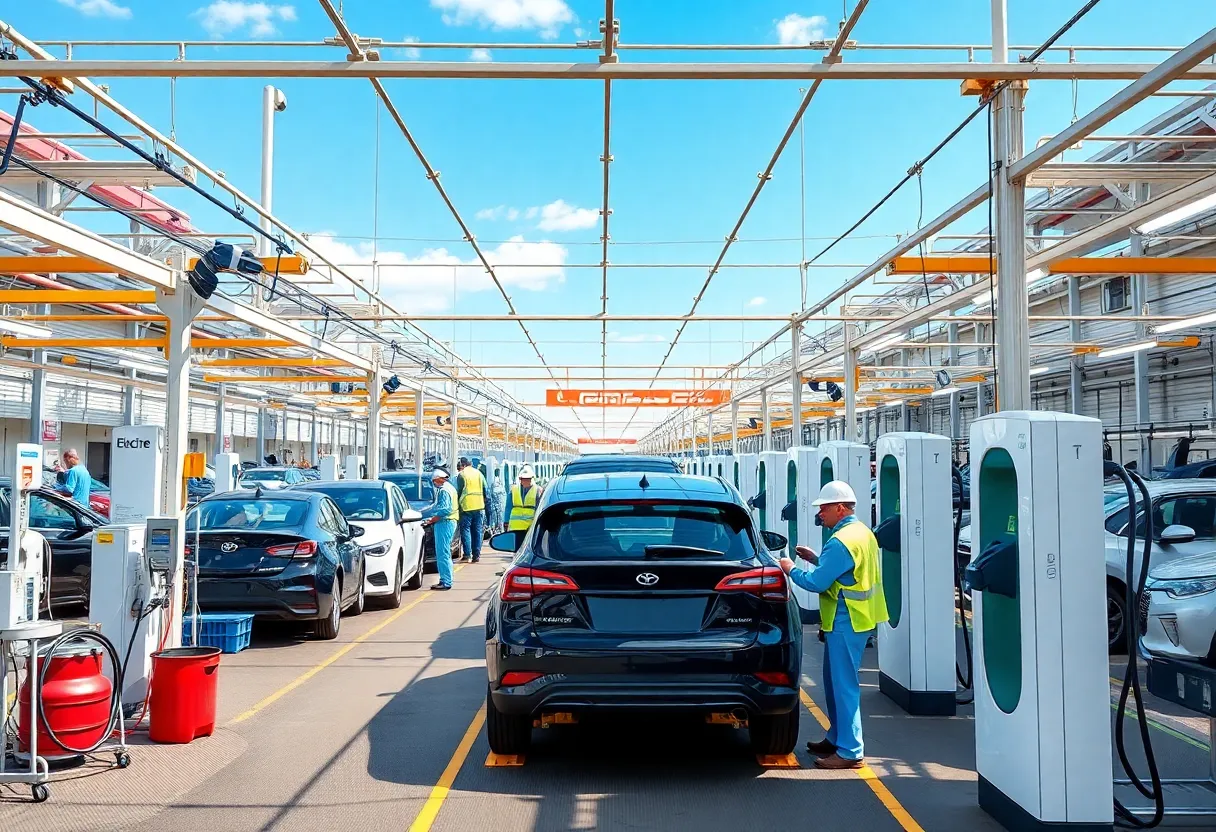News Summary
Michigan is experiencing a significant transformation in its electric vehicle (EV) industry, boasting over $27 billion in investment amid shifting federal policies. Despite recent rollbacks in EV-related programs by the Trump administration, local stakeholders remain optimistic about the future growth of electric vehicles. General Motors and other major automakers are evolving their operations, and there is a steady push for education and workforce training to meet rising demands. However, challenges such as potential tax credit repeals and mandates put the industry at a crossroads.
Optimism Shines Through as Michigan’s EV Industry Faces New Challenges
In the heart of Michigan, a transformation is underway. The electric vehicle (EV) industry in the Great Lakes State is buzzing with optimism, even as recent changes in federal policies signal shifts that could shake up the automotive landscape. With President Trump’s administration rolling back several EV-related programs, the industry has found itself at a crossroads. But despite these concerns, many stakeholders believe that the momentum for electric vehicles will continue to grow.
A New Milestone for Investment
Michigan is stepping into the spotlight as an EV manufacturing powerhouse, with over $27 billion funneled into around 60 EV manufacturing and battery projects. This impressive figure not only highlights Michigan’s commitment to electrification but also surpasses Georgia’s investment of $26.6 billion. As traditional auto manufacturing gives way to cutting-edge electric innovations, the state is poised to become the go-to destination for EV investment.
Innovations at the Forefront
Among the significant developments, General Motors has retooled its Factory ZERO assembly plant in Detroit to produce electric Hummers and Silverados. Meanwhile, a whopping $1.6 billion battery manufacturing campus is set to rise in Van Buren Township, expected to create over 2,100 jobs and churn out 200,000 EV battery packs annually. With hundreds of supply companies alongside major automakers, Michigan’s ecosystem is designed to support the burgeoning EV market.
Education and Training Take Center Stage
As the industry grows, so does the need for skilled technicians. Ray Smith runs a training program focused on preparing workers for EV-related jobs, emphasizing the importance of moving forward despite the shifting political landscape. Meanwhile, local auto dealer Eric Frehsée from Tamaroff Auto Group is making strides by upgrading his dealership with state-of-the-art equipment for battery handling and technician training, while also installing EV chargers to support the electrifying future of transportation.
Looking Ahead: Challenges and Opportunities
However, the EV landscape is not without its hurdles. Trump’s recent executive order aims to eliminate existing EV mandates, raising concerns about reaching the goal of 50% of new vehicle sales being electric by 2030. Additionally, the potential repeal of the $7,500 federal tax credit for new EV purchases and a halt on funding for EV charging stations can affect consumer interest and industry growth.
Responses from Automakers
Major automakers are ready to face the changing tides. Stellantis confidently states its ability to adapt to new policy changes, while both Ford and General Motors have remained quiet regarding the recent developments. The EV industry is being closely monitored as some manufacturers reconsider their electric transition plans, showcasing the delicate balance between policy and market growth.
Michigan’s Hopeful Vision Versus Federal Uncertainty
Despite federal policy changes creating an uncertain atmosphere, local players in the industry remain hopeful. The Eastern Michigan Electric Automobile Association’s president has voiced concerns that diminished federal support could curtail consumer enthusiasm for EVs. Nevertheless, companies like Plug Zen, based in Detroit, are working diligently to enhance EV charging infrastructure and maintain a cautious optimism for the future.
Global Trends Continue
On the global stage, the electric vehicle market is witnessing rapid growth. China’s EV sales reached a milestone, accounting for 50% of new car sales in July, a clear indicator of the accelerating shift towards electrification. Overall, global EV sales have surged 25% year-over-year, with estimates predicting 15.2 million EVs sold by year’s end.
Tesla’s Dominance and Market Expansion
Tesla continues to lead the charge, with its Model Y and Model 3 being the best-sellers globally and commanding a 49% market share in the U.S. However, legacy automakers like GM and Ford are ramping up their EV offerings, posing a challenge to Tesla’s dominance as they aim to capture a more significant piece of the EV pie.
Conclusion: The Road Ahead
With greenhouse gas emissions accounting for one-sixth of global emissions, the stakes couldn’t be higher for the EV industry. As Michigan rallies its resources and expertise, the journey toward a cleaner, more electrified future continues, with plenty of optimism still lighting the way. The road ahead may be winding, but the commitment to electric vehicles in Michigan shows no signs of halting anytime soon.
Deeper Dive: News & Info About This Topic
- AP News: Trump’s EV Policy and Michigan’s Auto Industry
- Wikipedia: Electric Vehicle
- CleanTechnica: Ford F-150 Lightning and Detroit Electric
- Encyclopedia Britannica: Electric Vehicle
- Detroit Free Press: Bill to Kill EV Subsidy
- Google Search: Electric Vehicles 2024
- Detroit News: Facts About Electric Vehicles in 2024
- Google News: EV in Michigan
- WXYZ: EV Car Rental Option in Detroit







